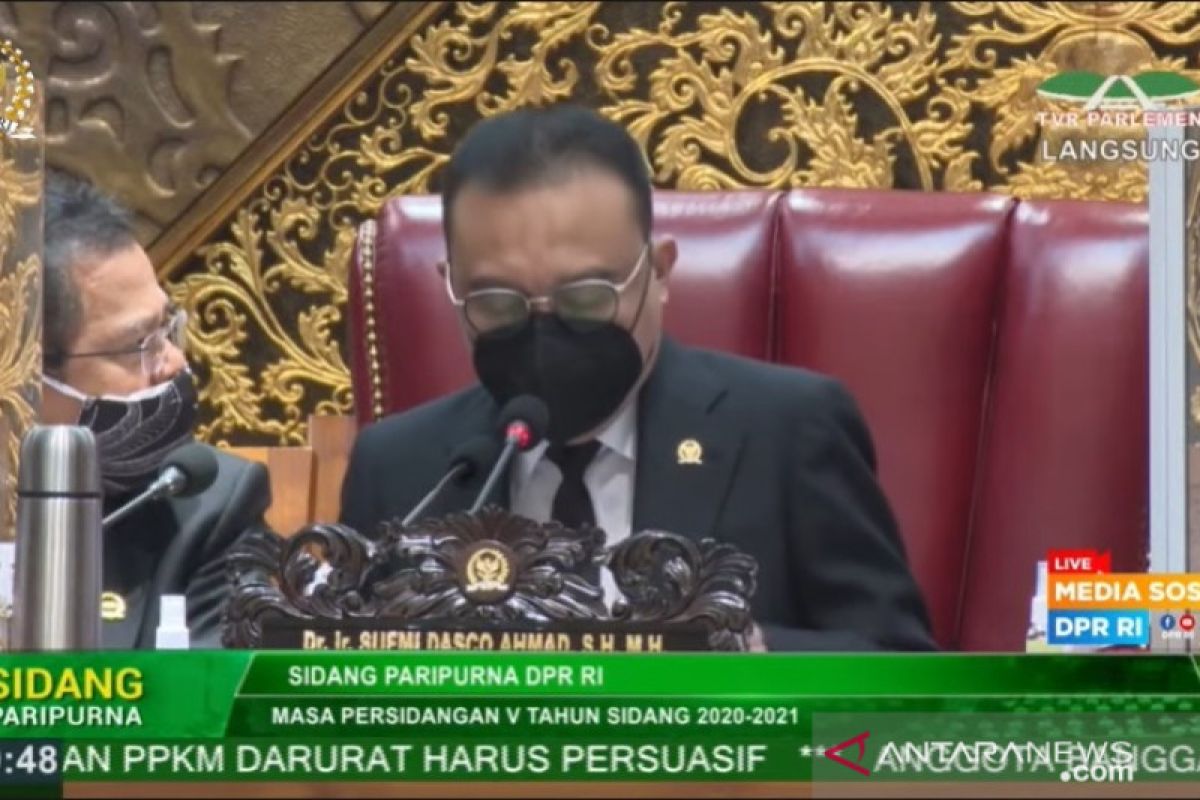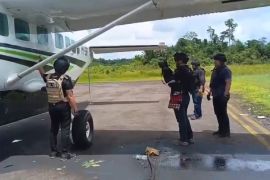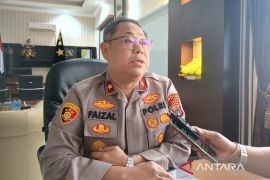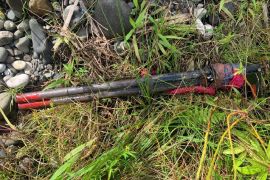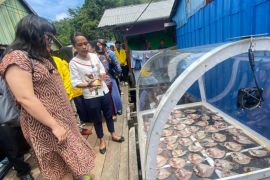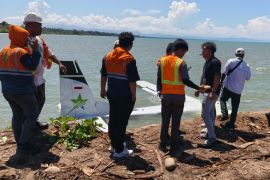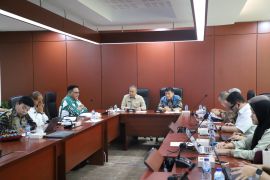House Speaker Puan Maharani highlighted the importance of the newly-enacted bill, saying it was long-awaited by native Papuan communities of Papua and West Papua.
In response to the enactment of the bill, West Papua Governor Dominggus Mandacan thanked the House members and the central government on behalf of his people and administration.
The passing of the revised Papua special autonomy law by the House will be a milestone for sustainable development and help boost the prosperity of all indigenous Papuans in the two provinces, he said.
Related news: House passes Papua special autonomy bill at plenary session
Speaking at a press conference in Manokwari, the capital of West Papua province on Thursday, Mandacan urged all native communities in Papua and West Papua to welcome the legislation.
Native Papuans must try not be roused by the objections and reservations against the extension of the Papua special autonomy law that certain parties have repeatedly echoed, he advised.
Instead, they must support the sustainability of regional development programs in Papua and West Papua to help accelerate the government's endeavors to improve prosperity of all Papuans, he added.
Home Minister Tito Karnavian, Finance Minister Sri Mulyani Indrawati, and Deputy Minister for Law and Human Rights Edward, Omar Sharif Hiariej, also witnessed Thursday's plenary session and the ratification of the bill.
The newly-enacted bill accommodates 18 revised chapters and two new chapters, according to the head of the House's Special Committee for Amending the Papua Special Autonomy Law, Komarudin Watubun.
The newly-enacted bill has accommodated the need to regulate the privileges of indigenous Papuans in political, education, health, labor, and economic sectors, as well as to support customary communities, he said.
It offers more room to native Papuans to get involved in politics and in such organizations as the Papuan People's Assembly (MRP) and Papua legislative councils (DPRK) in districts/cities, he added.
At least 250 seats will now be reserved for native Papuans in district- and city-level Papua legislative councils (DPRK), Watubun disclosed. At the same time, 30 percent of the DPRK seats will be reserved for native Papuan women, he added.
Related news: Hope new autonomy law accommodates Papuan people's interests: DPRP
Meanwhile, the Papua Legislative Council (DPRP) also welcomed the newly-enacted bill, and expressed the hope it accommodates native Papuans' interests.
The legislation would, hopefully, no longer trigger confusion and turmoil among native Papuan communities, the council's deputy speaker I, Yunus Wonda, said.
"In the future, we are again handing over the aspirations of native Papuans so that they can be reviewed for this enacted legislation," he remarked.
Therefore, despite the fact that the bill has been passed into law, the possibility of proposing an amendment to the enacted legislation would remain open in the future, Wonda said.
As the Papuans' representative, the DPRP hopes that more Papuans would become involved in the legislation process to prevent turmoil among communities, which can give rise to new conflicts, he said.
The Papua Special Autonomy Law No. 21 of 2001, which had been in force for nearly two decades and had paved the way for a significant amount of funds to flow into Papua and West Papua, was set to expire in November this year.
Home Minister Tito Karnavian had said earlier that the provision of special autonomy funds must be extended for the two provinces by two more decades to boost sustainable development.
"The special autonomy funds are so indispensable. More than 60 percent (of Papua's budgetary sources) are also obtained from the funds," Karnavian stated during a hearing with the House's Papua Special Autonomy Fund Committee on June 24, 2021.
However, the allocation of the special autonomy funds was set to end with the expiry of the Papua Special Autonomy Law No. 21 of 2001 in November this year, according to the minister.
Hence, Karnavian had called for an immediate extension of the funding allocation by two more decades.
The Indonesian government planned to increase the amount of special autonomy funds from 2 percent to 2.25 percent of the General Allocation Funds (DAU), he pointed out.
The government's plan had intentionally been incorporated in the bill for amending the Papua Special Autonomy Law No. 21 of 2001, Karnavian stated.
The special autonomy funds, which the central government planned to increase, would not be completely offered in the form of a block grant, he revealed.
Several parties in Papua have suggested that 1 percent of the funds be provided in the form of a block grant, while the remaining 1.25 percent be offered in the form of an earmarked specific grant, he stated.
The request for an earmarked specific grant for public services will be determined by the central government to optimize sustainable development and boost Papuans' prosperity, he remarked.
The enactment of the renewed Papua special autonomy law is expected to pave the way for the disbursement of special autonomy funds that the Papua and West Papua administrations need to continue their development programs.
Related news: Papua awaits prompt disbursal of 2nd round of autonomy funds
Editor: Sri Haryati
Copyright © ANTARA 2021
